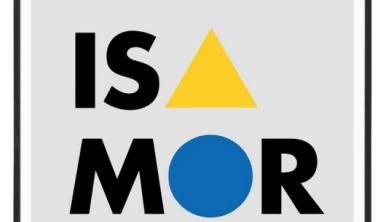Các cụm từ này đều là những cụm từ cực kỳ phổ biến trong cuộc trò chuyện hàng ngày ở The United States of American (USA) hoặc United Kingdom (UK). Mọi người sẽ nghe thấy chúng trong các bộ phim và chương trình TV và có thể sử dụng chúng để làm cho tiếng Anh của mình giống với tiếng của người bản ngữ hơn.
1. Câu thành ngữ số 1: can’t complain
2. Câu thành ngữ số 2: (to) crunch numbers
3. Câu thành ngữ số 3: (to) drive a hard bargain
4. Câu thành ngữ số 4: (to) get the ball rolling
5. Câu thành ngữ số 5: How’s it going
6. Câu thành ngữ số 6: (to) make a living
7. Câu thành ngữ số 7: now you’re talking
8. Câu thành ngữ số 8: out of the question
9. Câu thành ngữ số 9: (to) sweeten the deal
10. Câu thành ngữ số 10: take it or leave it
11. Câu thành ngữ số 11: (to) twist (someone’s) arm
12. Câu thành ngữ số 12: worth one’s while
Lesson 11 Bob drives a hard bargain.
Carol from the Village Market calls Bob to discuss Susan’s Scrumptious Cookies. Carol and Bob discuss how much Bob will receive for each cookie
Carol: Hi Bob. How’s it going?
Bob: Fine thanks, Carol. How are you?
Carol: Can’t complain. Bob, I’ve had a chance to crunch some numbers. I can pay you 50¢ per cookie.
Bob: That’s out of the question. At that price, it’s not worth our while. The ingredients alone cost us 30¢ per cookie.
Carol: Okay, let me sweeten the deal – 60¢ per cookie?
Bob: Carol, my wife and I need to make a living from this business.
Carol: Okay, okay, you’ve twisted my arm. I’ll pay you 75¢ per cookie. Take it or leave it!
Bob: Now you’re talking! We’ll take it.
Carol: You drive a hard bargain, Bob.
Bob: Yes, but we make a good cookie.
Carol: Let’s get the ball rolling. Bring me 2,000 cookies on Monday morning by 9 a.m.
1. Câu thành ngữ số 1: can’t complain
– Nghĩa tiếng Anh: Things are going well; I’m fine
– Nghĩa tiếng Việt: Mọi thứ đều ổn thỏa, tôi ổn
Ví dụ 1: “How’s business, Mike?” – “Can’t complain. I sold a lot of computers this month.”
Ví dụ 2: “How are things going at your new job?” – “Can’t complain.“
2. Câu thành ngữ số 2: (to) crunch numbers
– Nghĩa tiếng Anh: To perform calculations (especially financial calculations)
– Nghĩa tiếng Việt: Tính toán chi phí ( Sử dụng trong việc tính toán thu chi, ngân sách.)
Ví dụ 1: Scott loves to crunch numbers, so he decided to become an accountant.
Ví dụ 2: Wendy spends all her time at work in front of the computer crunching numbers and analyzing sales data.
3. Câu thành ngữ số 3: (to) drive a hard bargain
– Nghĩa tiếng Anh: To be tough in negotiating an agreement; to negotiate something in one’s favor.
– Nghĩa tiếng Việt: Mặc cả (về chi phí)
Ví dụ 1: I wanted to pay less for the car, but the salesman drove a hard bargain.
Ví dụ 2: Eric drove a hard bargain and got the company to raise their salary offer by $15,000.
4. Câu thành ngữ số 4: (to) get the ball rolling
– Nghĩa tiếng Anh: to get started
– Nghĩa tiếng Việt: bắt đầu (cái gì đó)
Ví dụ 1: Let’s get the ball rolling on this project. We’ve only got one week to finish it.
Ví dụ 2: If we don’t get the ball rolling on our vacation plans soon, we’ll end up going nowhere.
5. Câu thành ngữ số 5: How’s it going
– Nghĩa tiếng Anh: How are you?
– Nghĩa tiếng Việt: Bạn thế nào/ Mọi việc thế nào rồi?
Ví dụ 1: “How’s it going?” I asked Ted. “Everything’s fine. How are you?” he replied.
Ví dụ 2: “How’s it going?” Vladimir asked me. “Not bad,” I replied.
6. Câu thành ngữ số 6: (to) make a living
– Nghĩa tiếng Anh: to earn enough money to support oneself
– Nghĩa tiếng Việt: kiếm sống (bằng cái gì đó), kế sinh nhai
Ví dụ 1: Many people laugh at him, but Bill actually makes a living selling gourmet dog food.
Ví dụ 2: Danny makes some money playing his guitar on street corners, but not enough to make a living.
7. Câu thành ngữ số 7: now you’re talking
– Nghĩa tiếng Anh: you’re saying the right thing
– Nghĩa tiếng Việt: Nói đúng trọng tâm, gãi đúng chỗ ngứa (cách nói dân dã)
Ví dụ 1: You want to offer me free tickets to the J. Lo concert? Now you’re talking!
Ví dụ 2: You’d like to offer me a $10,000 raise and a comer office? Now you’re talking!
8. Câu thành ngữ số 8: out of the question
– Nghĩa tiếng Anh: Impossible
– Nghĩa tiếng Việt: Không thể nào, bất khả thi
Ví dụ 1: My friend Emily wanted me to climb Mount McKinley with her, but I told her it was out of the question.
Ví dụ 2: You want to borrow my new car and drive it across the country? I’m sorry, but that’s out of the question.
9. Câu thành ngữ số 9: (to) sweeten the deal
– Nghĩa tiếng Anh: To make an offer more attractive.
– Nghĩa tiếng Việt: Nâng mức đề nghị để trở nên hấp dẫn hơn
Ví dụ 1: IBM offered to sweeten the deal by giving John a company car if he agreed to work for them.
Ví dụ 2: We really want you to take the job here at Magna Corporation, so let us know what we can do to sweeten the deal.
10. Câu thành ngữ số 10: take it or leave it
– Nghĩa tiếng Anh: accept or reject an offer, usually a final one
– Nghĩa tiếng Việt: chấp nhận hoặc từ chối lời đề nghị ( thường là lời đề nghị cuối cùng)
Ví dụ 1: The highest salary we can offer you is $50,000 a year – take it or leave it.
Ví dụ 2: I’m offering to do the dishes for one week if you’ll help me with my science project. Take it or leave it.
11. Câu thành ngữ số 11: (to) twist (someone’s) arm
– Nghĩa tiếng Anh: to persuade someone; to convince someone
– Nghĩa tiếng Việt: Thuyết phục ai đó
Ví dụ 1: Ted didn’t want to get another tattoo on his back, but Amber twisted his arm.
Ví dụ 2: Okay, you’ve twisted my arm. You can borrow my new car and drive it across the country.
12. Câu thành ngữ số 12: worth one’s while
– Nghĩa tiếng Anh: worthy of one’s effort or time
– Nghĩa tiếng Việt: Xứng đáng với tiền hoặc thời gian bỏ ra, đáng đồng tiền bát gạo (cách nói dân dã)
Ví dụ 1: It would be worth your while to audition for the game show Jeopardy. You’d probably win a lot of money.
Ví dụ 2: Let me make it worth your while to work weekends. I’ll pay you an extra $10 per hour on Saturdays and Sundays.






